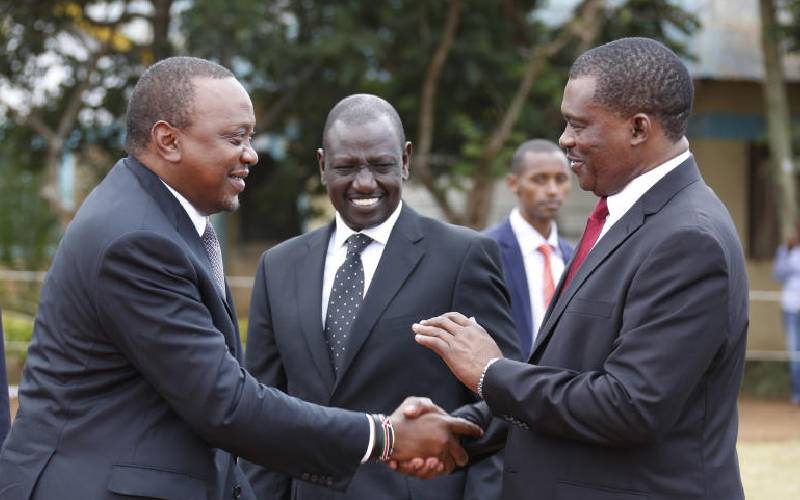×
The Standard e-Paper
Smart Minds Choose Us

President Uhuru Kenyatta consoles National assembly speaker Justin Muturi during the burial service of his late mother in Embu County as DP William Ruto looks on. [File, Standard]
In the twilight of President Uhuru Kenyatta’s presidency, few have maintained a political friendship with the Head of State like National Assembly Speaker Justin Muturi.